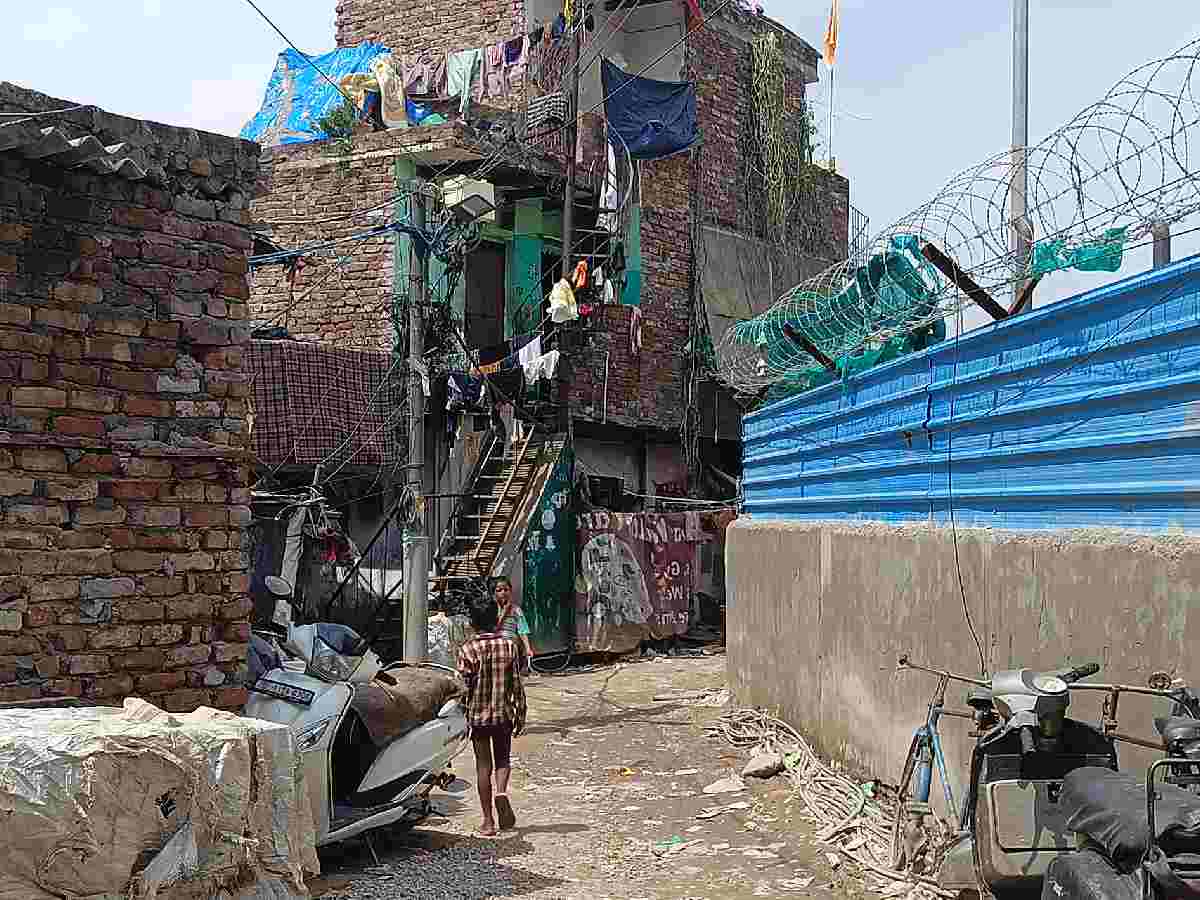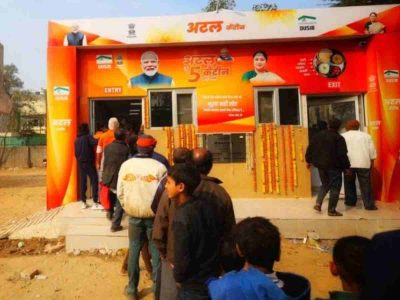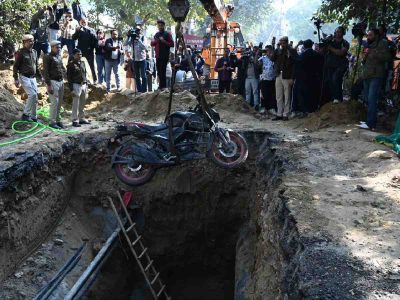Delhi: Sitting near the gates of what is meant to be his new home, Dilip Shah, a 40-year-old resident of the Jailorwala Bagh slum cluster, waits with wide eyes, hoping for an official to appear. He has followed this routine for the past two years, ever since he applied for his flat in 2022.
A desperate wait
Unfortunately, little stands in the way of Shah moving his family of three to the swanky high-rise amid the wide, open fields of North West Delhi’s Ashok Vihar. For Shah, the single-bedroom apartment is a godsend from the harsh living conditions of his house in the slum cluster. However, with each passing day, the wait reminds him of his desperation, as hope slips further away, minute by minute.
“I applied along with many others at the same time. None of us have received the flat, though we have our allotments. With whatever little savings we had already spent on the down payment, it would have been more useful to receive it as early as possible. I’ve been inside too; it’s almost completed, but they haven’t set any deadline,” he said, sitting on the wayside of the gate, waiting for another official to hear his pleas, to reassure him one last time about his house.
So far, Shah has paid a downpayment of Rs 24,900 to secure his spot in the high-rise. However, he still owes a full payment of Rs 1.45 lakh. Despite this, he remains confident about paying it off, as the period for payment is longer than usual. Alongside the principal amount, the slum dweller will need to pay a total of Rs 1.75 lakh if he goes five years without making any payments.
Unlike Shah, whose confidence remains unwavering, many other residents are on edge about their future in the massive structure.
Many of his neighbours have had to take out loans to cover the amount demanded by the Delhi Development Authority (DDA) under the Pradhan Mantri Awas Yojana (PMAY) scheme. The civic body asked all beneficiaries to submit their forms along with an initial deposit of the aforementioned Rs 24,900.
Also read: Delhi: Government neglect and overcrowding worsen cattle crisis
With no end in sight, Shanti Yadav keeps begging for the day to come when she will finally get to step inside the apartment. “They have taken our money, but we have no house to show for it. They said we would get our houses by March this year, but we are already in August and we still have nothing,” she said.
Currently, the complex is set to house 1,675 flats, with 1,078 flats allocated to residents of the in-situ slum. The remaining apartments have been allotted to eligible residents of two nearby slums— Rampur and Golden Park. However, with a population of over 2,000 families in the Jailorwala Bagh slum, according to residents, almost half will be rendered homeless, as they remain without assigned homes since the government has declared their slum illegal.
Some of the residents at the slum remain without an allotted home through no fault of their own. Avtar Singh will have to shift to another slum cluster the moment the bulldozers come rushing to demolish the settlement. He hurries, carrying a file of documents, to meet with an official from the DDA to explain his situation.
“I had left my village in early June 2022 for some work, knowing we had enough time to submit the registration form by June 15, which was the initial deadline given to us. But when I returned, I found out that an NGO had come to the slum and collected all the forms on June 8. I came back home on June 9,” he said.
He added that due to the negligence of the authorities, he would remain without a home. “They have made me homeless. There is no better way to put it,” he said.
Survival versus art
SURVIVAL VERSUS ART MESSY AFFAIR: The trash heap at Jailorwalah Bagh overlooking Indian Railways land SLOW WORK: The Jailorwala complex project, which borders the slum cluster, has been under construction since 2017 Unlike the Jailorwala Bagh project, which was announced recently, the Shadipur project, intended to host the residents of Kathputli Colony—a slum of puppeteers— has been under construction since 2009.
Managed by the construction company Raheja Developers, the project includes a luxury high-rise, Delhi Mall, and DDA apartments. In 2017, during the redevelopment process, the slum dwellers were relocated to a transit camp in Anand Parbat, while others were moved to DDA flats in Narela.
The puppeteers at the transit camp are facing a range of issues, from a lack of employment opportunities to the potential collapse of their art.
Karim Bhatt, a 55-year-old puppeteer, struggles to keep his art alive amid the constant worry about where his next meal will come from. This uncertainty has deeply affected their art and culture within the narrow lanes of the transit camp.
The daily grind for basic livelihood and a diminishing interest in their traditional craft are leading to their deprivation and the eventual collapse of their cultural heritage.
“In Kathputli, people would come from across the world to watch us perform. The DDA bulldozed our space, but that was not really a slum. We were living a dignified life,” he said. “But no one wants to visit the slums here in the camp.”
Also read: Delhi leads India in organ transplants with record growth in 2023
“Everyone is busy earning their daily bread. We do not have our own washrooms here. The authorities don’t visit anymore either,” said Istiaq Khan, who was once a magician but is now a daily wage labourer. He added that those who continue to practice their art are mostly found at traffic signals, hoping to earn enough to meet their needs.
“The earlier we get our apartments, the sooner we can resume our art,” he added.
The DDA has set a deadline to allot flats for Kathputli Colony in December, though officials at the site have indicated that construction could take another year or two.
However, according to another DDA official, there is no certainty about the deadlines for the flats at Kathputli Colony or Jailorwala Bagh. They refused to comment further.
The DDA flats in Kalkaji for Bhoomiheen Camp were recently under scrutiny due to lapses in maintenance and inadequate quality of life at the residence. Issues ranged from insufficient garbage collection and poor water supply to unsafe environments and a perceived indifference from the civic body.
Currently, the DDA has announced the construction of an in-situ slum redevelopment project in East Delhi for the first time, which is slated to include three clusters—Kalandar Colony, Deepak Colony, and Dilshad Vihar Colony.





